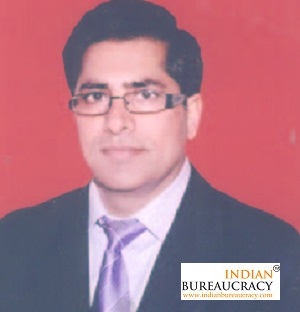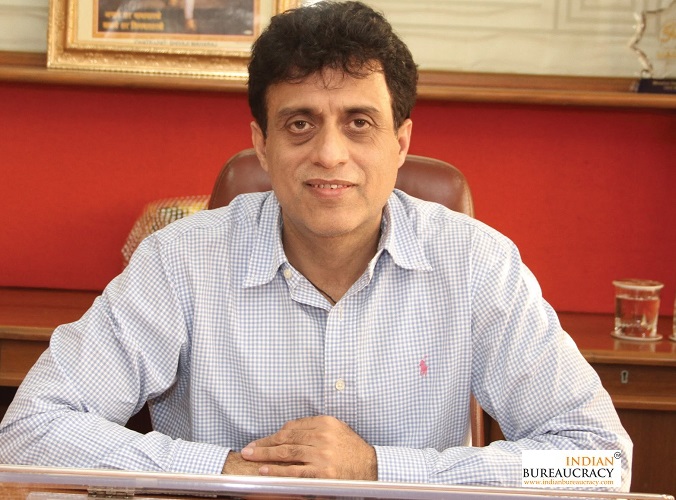
CII-Food and Agriculture Centre of Excellence (FACE) in partnership with Global Alliance for Improved Nutrition (GAIN) organized “Business Models for Securing Nutritional Outcomes” under ‘Swasth Bharat Sashakt Bharat’ on 25th August 2015 at New Delhi.
The objective was to revisit the agenda of nutritional security and understand the role of evolving partnerships and policy imperatives in making nutrition secure India. The sessions focussed on highlighting the role that the private sector is playing in ensuring nutritional security for all; understanding the role of innovative approaches such as fortification to address the challenges like micro nutrient deficiency and discussing ideas for further strengthening the agri value chain which is the basis for food as well as nutritional security.
Speaking at the inaugural session, the Chief Guest Mr T Nandakumar, Chairman, NDDB, said “that we already have infrastructure and systems in place to tackle the challenge and what is needed is a stronger operating mechanism to address the delivery deficit.”He further added that the framework for addressing the challenge has to focus on economic, social, environmental as well as technological aspects related to the issue of nutritional security. Highlighting the example of Maharashtra State Nutrition Mission Mr Nandakumar said we have many such success stories and the need is to learn from these successful interventions and scale them up.
Complimenting CII-FACE and GAIN for this important initiative Mr Salil Singhal, Co Chairman CII National Council on Agriculture and CMD, P I Industries Limited highlighted the need of measurable parameters to monitor impact of programs like National Food Security Mission, National Rural Health Mission etc on nutritional security; understanding the reason for high variability in nutritional security across states in India; synergizing the efforts of different Ministries to ensure collective effort in the same direction and lastly assigning a defined a role to the private sector to be a part of the various initiative in a bigger way.
Dr R B Singh, Past President, NAAS, stated that it is a paradox that farmer who is the producer of food is also the major part of the nutritionally challenged population. He further added that since under nutrition has serious epigenetic impacts the outcome is far more than what we actually perceive. His key suggestion was partnership between FAO and private sector on the five pillars of ‘Zero Hunger Program’. Also private sector should focus on three of the seventeen Sustainable Development Goals (SDG’s) i.e. ending poverty, ending hunger and ensuring healthy lives.
Mr Shyam Khadka, FAO Representative in India highlighted that in order to achieve nutritional security some key aspects to focus on are – strengthening the public procurement program particularly on storage front; due importance to be given to women education in the country as empowering women directly impacts nutrition in the family; striking a balance between what we produce and what we consume; strengthening agro processing and lastly focus on the deprived tribal population.
Dr T Longvah, Director in charge, NIN, opined that though India is a leading producer of milk & fruits and vegetables the paradox is that India is also among the top four countries facing serious nutritional challenges. The need of the hour is to focus on fortification in a big way. Innovations like high zinc rice etc have to be commercialized and scaled up to meet the crisis.
Mr Jan Delbaere, Deputy Country Director, World Food Program said India has gradually shifted from an era of dependence on food imports / aids to an era of self sufficiency and exports which is a remarkable achievement. In line with this shift, the World Food Program has also transformed its role from food aid provider to provider of technical assistance to Government of India. He mentioned that WFP is currently working closely with GoI to address the challenge of nutritional insecurity by partnering in three major programs i.e. Food Distribution; Mid Day meal and Integrated Child Development Services.
Dr Purvi Mehta Bhatt, Senior Advisor and Head of Agriculture, South Asia, (BMGF) highlighted the importance of focus on making food affordable to meet the challenge of nutritional insecurity. Her views were that though cereal consumption across different income groups is almost comparable a huge gap exists in high value commodities like Fruits & vegetables, milk & milk products etc which are equally important from the aspect of nutritional security.She brought to the attention of the panel that we have seen successes in countries like Vietnam, Thailand, Brazil etc in the arena of strengthening nutritional security and India has its own lessons to learn from these countries.
The panel discussion ‘Business for strengthening nutrition security’ chaired by Ms Vinita Bali, Chair, Board of Directors, GAIN, highlighted the efforts of private sector companies like Cargill, DSM, Mother Dairy and Ruchi Soy in the arena of ensuring greater nutritional food to the consumers. The key actionable outcomes that evolved from the session were–i) translate the benefits of fortified foods in a language easily understood by the consumer; ii) options like offering nutri-mixes etc can be explored; iii) fortification of Mid Day Meal / grain under PDS to expand outreach to the low income groups; iv) strengthening the delivery mechanism.
The consultation was well received by all the stakeholders and saw participation from policy makers; consumer organizations; researchers and institutions, private sector and end users.
IndianBureaucracy.com wishes the very best.







Leave a Reply
You must be logged in to post a comment.